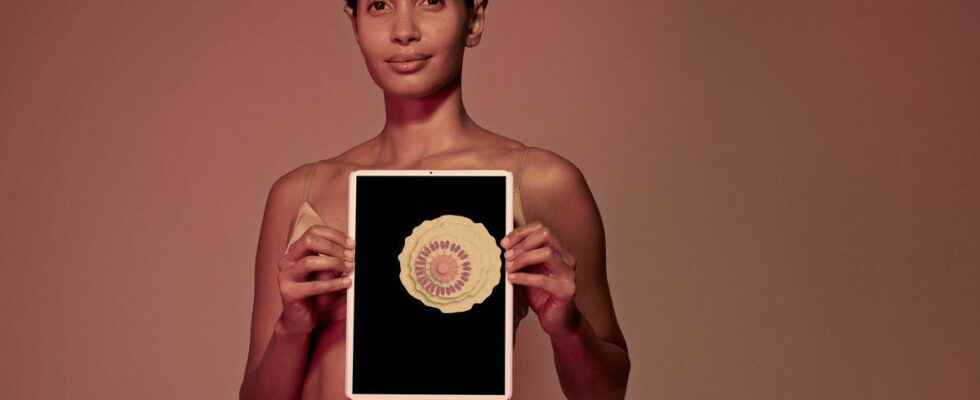Published on
Updated
Reading 2 mins.
According to a new study, a digital screening test could detect breast cancer. It claims 98% accuracy. Promising results which however remain to be confirmed.
Make a mammography is rarely pleasant. But, good news, this medical examination could soon be replaced by a much less intrusive form of screening: a fingerprint test, marketed in the form of a kit. The results of this study are available in the journal Nature.
Sweat taken from the fingers
To create this innovative kit, researchers from the Jasmine Breast Unit at the Doncaster Royal Infirmary (United Kingdom), recruited fifteen women with benign, early or metastatic breast cancer.
Smears were then taken from the participants’ fingers.
Result ? The scientists realized that this technique made it possible to detect breast cancer with an accuracy of 97.8%, thanks to the sweat taken from the fingers of the candidates.
Incredibly excited to share our latest research on “Non-invasive screening of breast cancer from fingertip smear”, at the interface between forensics and clinical diagnostics. Sweat is a beautiful thing! (1) https://t.co/csyKRZ3mGb
— Simona Francese (@SimonaFrancese) February 2, 2023
Even better, the test distinguished between malignant and benign tumors, but also helped to indicate the stage of the cancer.
“Looking at molecules that tell us the sex of the individual, we came across certain molecules – small proteins and peptides – which are also indicated as potential biomarkers for breast cancer.“, indicated to the Sunday Times Professor Simona Francese, at the origin of the discovery.
Towards a change in breast cancer screening and diagnosis?
Another advantage of this test: it is easy to use (the person’s fingerprint just needs to be coated with a chemical coating) and can be used at home.
“At a time when the national health system is understaffed and experiencing considerable delays, a painless, rapid and non-invasive method of breast cancer screening, with sample collection from the comfort of home, is highly desirable.“, explains the scientist in a communicated.
Professor Wyld said: “This new technique is still at an early stage of development but the results are very promising. We plan to undertake further research to confirm these results on a large group of women, but if the results are confirmed, the technique has great potential both for breast cancer screening and diagnosis, but also for monitor the effectiveness of treatments such as chemotherapy”.
If the effectiveness and reliability of this test were to be confirmed, it could soon change the screening and diagnosis of breast cancer.
